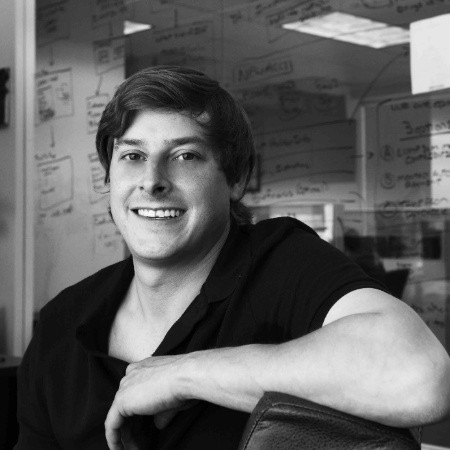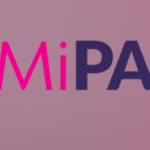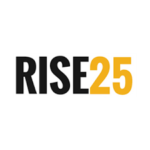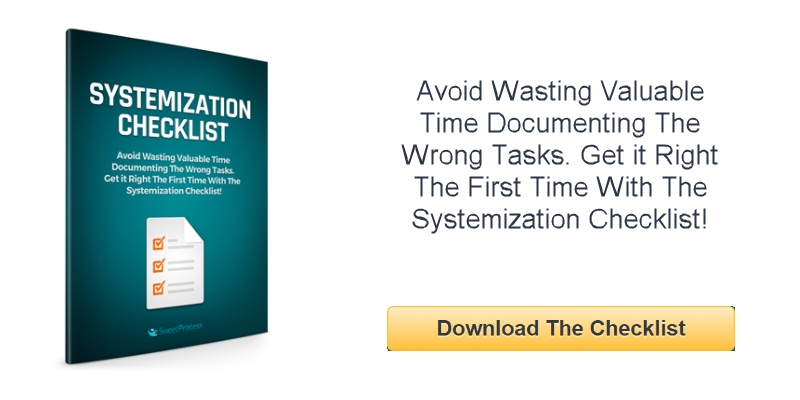Scaling Your Business With Effective Documentation
Last Updated on July 5, 2022 by Owen McGab Enaohwo
Effective documentation gives businesses a clear blueprint for operations.
As the chief operating officer at Bitcoin IRA, a financial services platform, Chris Kline implemented regulatory standards and scaled up operations in the organization by documenting their processes.
Chris Kline is the guest in this episode of the Process Breakdown Podcast. He speaks with host John Corcoran about the benefits of creating standard documentation in business.
Listen to this audio interview
Listen to more expert interviews like this
Key Resource List
SweetProcess — Sign up for a 14-day free trial. No credit card is required.
Show Notes
[0:26] Intro
- John Corcoran mentions some of the past guests who have been on the show including David Allen of Getting Things Done and Michael Gerber of the E-Myth.
- John Corcoran introduces SweetProcess, a workflow tool that helps businesses streamline their operations even in life-or-death situations.
- SweetProcess offers a 14-day free trial without a credit card.
[1:40] John Corcoran introduces the guest, Chris Kline.
[2:32] Chris recounts his experience getting into the bitcoin business in 2015.
- Since it was new territory, the team at Bitcoin IRA didn’t have the luxury of time to think about compliance or regulations at the time. They were focused on securing their clients’ accounts in the best ways possible.
[3:49] What’s bitcoin all about?
- Bitcoin creates immutable transactions that don’t involve middlemen. Blockchain technology makes bitcoin transactions transparent to everyone.
[5:20] Chris gives an overview of Bitcoin IRA.
- Bitcoin IRA is an organization that specializes in managing retirement accounts. It helps investors maximize profits and save costs on tax by investing in cryptocurrency.
[7:15] How does Bitcoin IRA function as an independent business without government legislation?
- The absence of legislature in the bitcoin business causes irregularities at the consumers’ expense.
- Bitcoin IRA works with government agencies to regulate and maintain order in the bitcoin business.
[9:22] Chris describes how the team started to document their processes for better operations.
- The first step the team took in documenting their processes was to find the right person for the job: a compliance officer.
- They worked closely with the compliance officer to refine and streamline their operations in line with regulatory standards.
- You may never go to market if you want to perfect your documentation first. You can start your business but must document your operations if you want to scale.
- Tribal knowledge is a problem with startups. When you are scaling your business, you must document your operations to overcome tribal knowledge.
[13:00] How do you manage compliance in the early stages of business?
- The team at Bitcoin IRA prioritized two compliance needs in the early stages of their business: keeping their assets safe and keeping their clients safe.
- If you don’t keep your asset and client information safe, you are going to run into trouble.
[14:47] Chris talks about getting some inspiration from how Navy SEALS run their operations.
- Navy SEALS focuses on training and building an elite team with the ability to tackle a range of issues to keep operations running 24/7.
- Chris has a “Navy SEALS” team on the ground to enhance the operations at Bitcoin IRA.
[18:06] Chris shares some parting thoughts.
- Emotional intelligence is key to running business operations successfully.
- Without emotional intelligence, you can’t build a competent team that can function effectively in your absence.
[19:02] How can people find more information about Bitcoin IRA?
- For more information about the organization, you can download the Bitcoin IRA app from the Apple Store or Google Play Store. You can also connect with the company on LinkedIn.
[19:23] Outro
About Chris Kline

Chris Kline is the co-founder and chief operating officer at Bitcoin IRA, a cryptocurrency financial services company. He partnered with Camilo Concha and Johannes Haze to develop a platform for investors to leverage the growth in the digital currency marketplace.
Chris has a track record of working in the financial services industry with strong skills in advertising, sales, event management, public speaking, and retirement planning. He holds a degree in international finance and leadership from the University of Colorado at Boulder.
Transcript of the interview
Speaker 1: Welcome to the Process Breakdown Podcast where we talk about streamlining and scaling operations of your company, getting rid of bottlenecks and giving your employees all the information they need to be successful at their jobs. Now let’s get started with the show.
John Corcoran: All right. John Corcoran in here co-host of the Process Breakdown Podcast where we talk about streamlining and scaling operations of your company, getting rid of bottlenecks and giving your staff everything they need to be successful at their job. Go check out our archives because there’s lots of great episodes through our past guests include David Allen of Getting Things Done and Michael Gerber of The E-Myth and many more. And my guest today is Chris Kline at bitcoinira.com. We’re going to learn all about how he has streamlined his operations in a evolving regulatory environment, so it’s really fascinating discussion. And of course, this episode is brought to you by SweetProcess, if you never had team members ask you the same question over and over again, maybe it’s the 10 time you spent explaining it. There’s a better way in a solution SweetProcess is a software that makes it drop dead easy to train and onboard new staff and save time with existing staff, universities, banks, hospitals, software companies they all use them, but also first responder government agencies who use them in life or deaths situations to run their operations.
John Corcoran: Use SweetProcess to document all the repetitive tasks that eat up your precious time so you can focus on growing your team and empowering them to do their best work. Sign up for a free 14 day trial, no credit card required, go to sweetprocess.com that’s sweet like candy S-W-E-E-Tprocess.com. And my guest of course, Chris Kline he hails from sunny beautiful Los Angeles is the COO and co-founder of the world’s first largest and most secure cryptocurrency IRA platform, it’s called Bitcoin IRA. Established in 2016, the team has gained over a 100,000 users and received more than 2,500 five star user reviews for their platform. And Chris, such a pleasure to have you here today, and I want start by asking you about… First of all, you were very early to this industry, very nascent industry still evolving and you started your business in 2015, 2016 time period, very early not much guidance in terms of regulation there. And we’re going of course talk about documenting your processes, but what was it like in the early days jumping into it? I’m sure family and friends were like, "You’re nuts. What are you doing?"
Chris Kline: Well, I had been in IRAs for about three years before Bitcoin came across my desk. And it was ’15 that’s what we spent a year figuring out how to do it, and then ’16 is when we went to market. It was a very interesting time because when you’re at that cutting edge level of innovation, you’re probably not thinking about compliance or honestly operations, regulations anything, because if you’re thinking about all that you’ve already gone bankrupt trying to figure out how to do this. You got to get something to market and see if it’s there. And that was an interesting time because what you have to focus on is, "Okay, we’re consumer facing, we’re taking care of people’s retirement accounts, we need to be as secure as possible, and as careful as possible with these monies." And that was your core focus. And then if you take that as your premise, you can grow in, do the right things and the right things come to a growth level of your business. Does that make sense?
John Corcoran: Yeah, absolutely. And it seems like you end up in a place where there’s the analogy of you’re flying a plane at 30,000 feet and you got to rebuild the engine, but I imagine the compliance and the documentation is kind of like that. But before we get to that, just tone it down for me for someone who’s listening to this, tell us about at its core first of what Bitcoin is for those who don’t know. We’ll start there and then I’ll give you a follow up.
Chris Kline: All right. So Bitcoin 30 second elevator pitch-
John Corcoran: If possible.
Chris Kline: If possible, basically there’s a lot of ways we’ve thought about money over the years. And if we could be caveman, we thought about barter in trade, if we were Roman soldiers we thought about coins and silver of gold, if we’re today we think about US dollars or fiat, right?
John Corcoran: Mm-hmm (affirmative).
Chris Kline: It continues to evolve. And what Bitcoin brings to the table is immutable transactions that don’t involve middlemen or governments or sovereign nations that create currency and control that currency in a certain way. And that’s very attractive to tech oriented type folks, because what makes it immutable is blockchain technology and it allows that there’s a ledger that everybody can see that can’t be changed, manipulated or modified and that’s kind of the driving force of what makes Bitcoin great. It’s finite and it’s immutable.
Chris Kline: And then off of that has come all kinds of different cryptocurrencies for so many different needs. You were mentioning your sweetprocess.com and what they do for ambulances. There’s a cryptocurrency not here in the United States, but abroad that is designed at being able to point whatever rescue services are needed and the closest place possible by a blockchain to connect the two nodes, and they’re using it in second and third world countries to help increase the coverage that they have.
John Corcoran: Wow, fascinating. And so in terms of what your company does with Bitcoin is you created the first IRA using Bitcoin or funded with Bitcoin?
Chris Kline: Yep, so we were doing our retirement work already with other assets, real estate, private equity, LLCs and then crypto came across our desk and it’s kind of… If you really believe in Bitcoin, which if you could imagine go back 2016 people that were buying Bitcoin with their retirement 2016, I’m friends with most of these folks, so they’re retired NASA scientists, IBM engineers, Google, the big [crosstalk 00:05:48].
John Corcoran: The early adopters. The technology comfortable people.
Chris Kline: Exactly. And the reason why they looked at it was if this thing does what I think it’s going to do and it was 200, $300 maybe $500 at the time, then I would love to have this in a retirement setting, because you either get tax deferred or tax free savings, that’s what retirements were built for. So you can watch it grow and you get taxed with a traditional on the way out, Roth you never get taxed again and these are great situations for people to believe in it and it worked for them, right? These guys bought it three, four, $500 and it’s now… Even though it’s down it’s at 40, 43, $45,000 today, and what better instrument because if you don’t have it in that, imagine you were that foresighted you would have a really big capital gains tax, especially in where we’re headed as an economy it looks like those kind of taxes are going to keep increasing.
John Corcoran: Yeah, so the IRAs are fundamentally a creation of legislation.
Chris Kline: Yep.
John Corcoran: The government creates IRAs but then you’ve got this other asset that is not created by the US government, exists outside and is kind of in a regulatory gray area because there hasn’t been to my knowledge regulation that’s come down to regulate it yet or to provide guidelines. So it must have been a little scary going into that not knowing how future legislation might affect both the asset that is critical to your business and also all of the clients that you work with, customers you work with.
Chris Kline: But I learned when I was going through it that you got to uphold regulation, because I’m a pretty genuine business guy, I’m from Colorado, middle America kid. I’m going to try to build something that keeps people safe generally speaking when you’re talking about people’s money, but what I saw and anybody that was around at the time in 2018 was a plethora of just questionable behaviors. Everybody had an ICO, everybody had this and there wasn’t anything to protect consumers from making mistakes or getting down something that was predatory so to speak. And I applaud watching the way it’s evolved, it’s been a difficult evolution because at first nobody knew who to regulate, and who was going to regulate, so you’ve got SECC, FTC, state regulators, banking regulators all trying to kind of feel this thing out.
Chris Kline: And I had a lot of conversations early on with them because they reached out that and we answered and we were like, "Hey, what can we help you with?" And some of them were literally walking into a week later they were going to their first Bitcoin conference, and they wanted to know, "What should I expect?" And I was like, "Well, here’s the best way. And this is how I did my first Bitcoin conference and how I took it all in to understand." And I hope that was helpful over the years and it’s going to keep coming and that’s a good thing because that means that consumers… I mean, think about it, our database are not our clients are 1976 or younger or earlier they were born 75% of them or before yet 1970.
Chris Kline: So we actually have an older slant compared to the rest of the crypto industry, and those are folks that have saved up over the years and they want to pick a piece and maybe hedge against inflation or find gains in crypto, whatever their reason might be. But we have to take that like the holy grail and protect it and it’s great to see that the rest of the industry is evolving to protect consumers. That’s a really big deal in the crypto space.
John Corcoran: So talk to me about… You said that the early years were just about revenue and product market fit, seeing if there’s a market out there for it. And then eventually you devote more energy and attention to compliance and documenting your processes, so take me through what that was like for you as you moved into that phase.
Chris Kline: Yeah, for us the first piece was finding the right player and we found Maryann Bullion, she’s our chief compliance officer. She was working at the FDIC special investigations for financial crimes, and this was 2018. And we got her attention, and we had a lot of meetings with her and she drunk the Kool-Aid or came to the dark side as we joked with her and jumped over from traditional finance and regulation to understand crypto. And the rooms we shared together for the next eight to 12 months were fundamental in what we did for the next three years. And what she taught us was how regulators think and what it is the things they’re looking for to protect consumers, make sure they have transparency, make sure that if somebody’s standing in front of you and asking for a report you can generate it irregardless of the asset class that you’re trying to manage.
Chris Kline: And so we were able to refine and tweak and get ourselves in that right place, and that’s what opened up the conversations like I was mentioning earlier with groups that were… The CFTC, SECC, we were on a panel together with them to help try to educate the future generation of regulators. And then from there it’s really been focusing on as you grow your business the increased risk you have with your business. And anybody that’s in operations understands that if you’re successful, there’s a detriment to being successful, you have to do more work to keep things safe, compliant, and regulatory standard.
John Corcoran: So what I’m hearing from you it’s kind of like you’re juggling and you’ve got 17 balls in the air. You’ve got product market fit that’s most important first, you got to have revenue in the door, then you have these compliance issues, then you have issues with the regulators are going to want to see certain types of reports which consumers are also going to want to see, but then can the software even do this? So we need to make sure the technology-
Chris Kline: Now we’re talking technology. Yep, exactly. [crosstalk 00:11:12].
John Corcoran: And then let’s document it all, but oh, if it changes a week from now we got to change the documentation and you got to keep-
Chris Kline: And it’s that’s why things like documentation always ended there at the end of the line, but they can’t be there forever. You can’t start with them because I call it analysis paralysis, you’ll spend a year documenting everything but you’re not going to go to market and if you don’t go to market, you have no profit, which means you can’t pay for the documentation that you just did, right? So it all comes and processes together and if you can get through certain stages of it, if you ignore it forever you’re doomed is what I say, because at some point you can’t scale, there’s tribal knowledge that’s involved with startups.
Chris Kline: I went through rounds of stuff and know that there’s so many in my own head still today there are things that are caught here that need to be documented. So I think that you asked me what grade I gave myself and I wasn’t very nice to myself for the turn of the year, because I know that we can extract more of that tribal knowledge and get it in paper you got to think about contingency plans. One of my first mentors used to say, "Hit by bus syndrome." And he would always… He did it very well, it was over something that honestly probably could have got away with, but the fact that he cared about it there is because he had the experience of getting burned elsewhere. Technology is always going to burn you when you least expect it, right? That’s always what happens. It’s never when you’re having a great day, it’s always when things are going wrong and that’s kind of the balance you have to find with all those balls that you’re juggling like you said.
John Corcoran: Yeah, and how do you… You’re documenting your process, you’re saying, "Okay, we want top security, we want to be in compliance." You brought in someone who’s got the expertise, but still there’s… How often do you say, "Okay, let’s make sure this is compliant." And they say, "I don’t know, because we’re so early."
Chris Kline: In the first couple years it was a lot of conversations at the board level of understanding what was I guess, you could call I mean, you’re retired or recovering attorney precedent wherever you could find some precedent. And that was where they came in from the compliance team. And then trying to just follow a path of business ethics, business morals, a client’s money you’re talking about the retirement money we have to protect it. And we came from a background of it, right? We did real estate in it, precious metals, LLCs, private equity, we came from it so we understood that importance and build those parallels and security is paramount at that point. And the first thing is, is keeping the assets safe in our world, and the second thing is keeping the individual safe which is a problem for every… If you’re on this podcast right now, you have faced security issues whether internal, external or otherwise for your business probably in the last three weeks without a doubt. It’s just it’s [crosstalk 00:13:57].
John Corcoran: Becoming more and more common.
Chris Kline: It’s becoming so. And they’re getting better and better at it and so you got to always keep yourself safe. And so that’s a big piece. So you’re kind of another ball comes in and you get big enough that target grows and that target grows, and now you’ve got to deal with more threats to the security of your clients. And that’s something we all have to take seriously, no matter what business you run you’re going to have identifiable information of some sort about a client. And if you don’t keep that safe, you’re going to be that next headline and nobody wants to be that headline, right?
John Corcoran: There’s a lot of weight on your shoulders.
Chris Kline: Yeah, for all of us.
John Corcoran: And we were talking beforehand and one group that you turned to that also is used to having a lot of weight in their shoulders is Navy SEALs. You actually took some inspiration for the work that you do as COO from what Navy SEALs do in their operations, so tell us a little bit about that.
Chris Kline: So over 10 years I’ve worked with a lot of different operations, agents managers, supervisors, directors, right? And one thing I started to notice that you mentioned, I read a lot of books from former Navy SEALs. They write a lot because they have some pretty cool experiences that are pretty fun to read about, but most of them angle at the core operational values that make the SEAL successful. Obviously, you got to have guys that have guts, right? You got to have guys that have bron, but it’s that logistical network that happens and how they train, and they build people and they focus on certain things to make them what are the elite. And when you’re dealing with an asset like crypto, you almost have to be elite. It’s 24/7, doesn’t take any birthdays, holidays or otherwise, clients it moves fast and often so clients have a higher demand of service.
Chris Kline: And you’re building this business in this… With all those things on top of what we’ve already talked about that you have to kind of think and build your people in the same way. And so what we did this year actually is we made a pivot and we put a SEAL team in place with a Master Chief, her name is Billy Joe, she’s amazing. And the way that the team has grown is it’s a one for all, all for one I can do the thing that the person next to me can do just as well, but I also have my specialty and so that-
John Corcoran: So when you say you put a SEAL team in place, you don’t mean like an actual Navy SEAL team?
Chris Kline: No.
John Corcoran: You mean like… Okay, so you created a team.
Chris Kline: I’ve built a culture around it.
John Corcoran: Got it.
Chris Kline: I built a SEAL team culture around it.
John Corcoran: So you created a team within your company that operates-
Chris Kline: That we call the SEAL team.
John Corcoran: Got it, okay.
Chris Kline: Yeah.
John Corcoran: And they’re what… They have anything goes or what was the guidance that you gave this team?
Chris Kline: No. Well, it was about building from the beginning to the end. In one year we went from four people plus Billy Joe plus me was five and now we are at 17, I think. So it was about finding, it was a lot of recruitment, training and development this year. And what we’re going to do next year which is we’re already in ’22 is we’re going to refine the talents. So these great players that are like, "Hey, I can see air and land, I can do all these things really well." Now we’re finding that special, that superpower that they have so that the team has even more of a broad spectrum to itself. And it’s working because also if you’re in operations and you’re a business owner or manager or director or whatever sea level or otherwise, we have a very big challenge this year of keeping a positive culture with our employees.
Chris Kline: I’m a fully remote business, I’ve been a fully non remote business, I know business owners that are in a lot of different places. You’ve got what’s happening they call it the Great Resignation, you’ve got remote fatigue, you got these things. Culture is more important than it’s ever been and it’s because we’re not together in a room where they can artificially create it amongst themselves and you have to manage it, you have to create it, you have to manifest and you have to guide it and so that’s a big thing that you have to do as any business owner today.
John Corcoran: Right. And that’s one more ball in the air in addition to all those other things [crosstalk 00:17:45].
Chris Kline: One more ball?
John Corcoran: Yeah.
Chris Kline: Operations is the all guts no glory is what I tell people all the time. It takes hutzpah, but when things go wrong you get crushed, when things go well sales gets the win.
John Corcoran: They get I think the victory lap, right? Well, Chris this has been fascinating. Anything else, any parting thoughts that you want for the audience you want to share?
Chris Kline: One thing I was thinking about this year and just in a turn of things and what I’ve watched as far as growth for myself personally and for people around me good leaders. EQ is way more important than some of us nerds try to justify and especially operations guys, because to do all these balls in the air you’re running an algorithm in your head all the time, right? You’re deciding what’s got the greatest risk? What decisions do I have to make? What are the things that I have to do? And it builds a little bit of an ego or a chip on our shoulders, because it’s intense, right? But without EQ you can’t build the team that can replace you someday. And everybody should want to have more time with their family, more vacation and make more money and if you’re an operator and you’re at that level, to unhinge yourself you have to have a team you can trust and it starts with EQ, that’s a big thing I’ve been noticing lately.
John Corcoran: Emotional intelligence you’re talking about?
Chris Kline: Yep.
John Corcoran: Yeah. Okay, great. Chris, this has been great, where can people go to connect with you, learn more about Bitcoin IRA and ask you any questions or whatsoever?
Chris Kline: Yeah, if you want to know about Bitcoin IRA, I recommend downloading the app. You can go to the Apple Store or the Google Play Store and just search Bitcoin IRA, it’s like an orange egg, your nest egg in Bitcoin, or if you want to connect with me I do a lot on LinkedIn. I connect with a lot of folks there, so just look up Chris Kline, Bitcoin IRA on LinkedIn and connect with me. I look forward to meeting many of you.
John Corcoran: Excellent. All right. Thanks so much, Chris.
Chris Kline: Hey, thanks man.
Speaker 1: Thanks for listening to the Process Breakdown Podcast. Before you go quick question, do you want a tool that makes it easy to document processes, procedures, and all policies for your company so that your employees have all the information they need to be successful at their job? If yes, sign up for a free 14 day trial of SweetProcess. No credit card is required to sign up. Go to sweetprocess.com sweet like candy and process like process.com. Go now to sweetprocess.com and sign up for your risk free 14 day trial.
Owen: Hi, this is Owen the CEO and co-founder here at SweetProcess, if you’ve enjoyed listening to this podcast interview actually, you know what I want you to do? Go ahead and leave us a five star review on iTunes that way we get more people aware of the good stuff that you get here on this podcast. Again, go onto iTunes and leave us a five star review, but before to reading your review, have a good day.











Leave a Reply